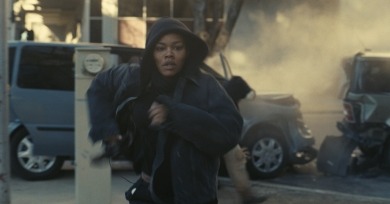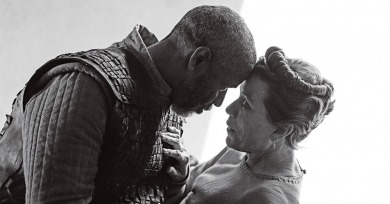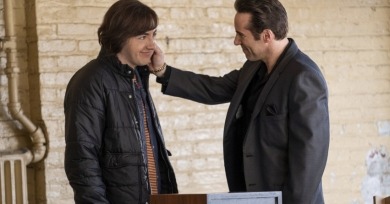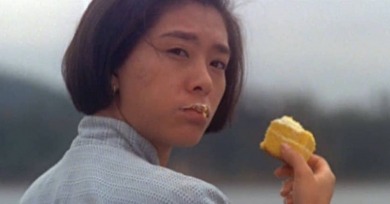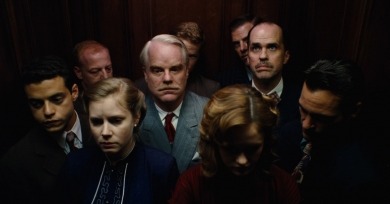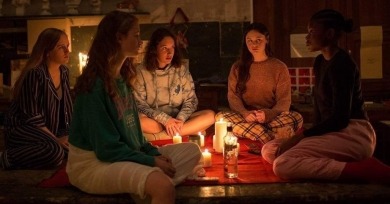Violet Lucca
One Battle After Another unapologetically addresses the completely inexcusable injustices of contemporary American life while being incredibly funny, exciting, suspenseful, and poignant, particularly about the act of parenting a biracial child.
Joel Coen’s The Tragedy of Macbeth is full of lovely, obvious, expressionistic style choices, which not only registered on my limited Shakespeare palate but felt invigorating after 18 months of watching mediocrely lensed historical dramas on my TV.
I am left with the feeling that Many Saints is an expression of Chase’s archness run amok, rather than an invitation to immerse myself in a universe like that of The Sopranos, where, like our own, everyone feels put upon, can’t see past their pain, and therefore fail to notice the pain of others.
Two women try to make philosophical and moral sense of the increasingly confusing world in which they live in this week's pair of films, which speak across centuries and countries.
Lancaster is the type of deeply flawed, selfish man with too much power who led the latter half of the 20th century astray, and remains at the top well into the 21st. He is the past, our horrible present, and even worse, the future: a time-traveler of the most diabolical variety.
The question of who gets to participate in a society because of their values and cultural awareness is the central question of Bertrand Bonello’s Zombi Child, a film that is quite unlike his previous work.
Just like the world we live in, where the inequalities between rich and poor and male and female only grow crueler and less escapable, the rage that undergirds Burning is instantly familiar.
Much of Where to Invade Next isn’t really that funny, as it mostly contains groaners straight out of the sort of “FWD: FWD: RE: BUSH JOKES” emails you’d see in your inbox circa 2003.
Walter Mitty may be a film that features a character who’s basically a retargeting ad that speaks in sponsored tweets, but it’s beautiful in a way that neither mainstream nor independent films aspire to anymore.
